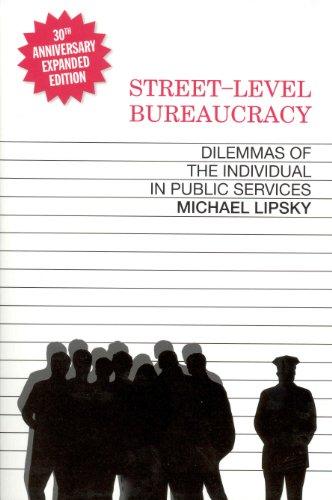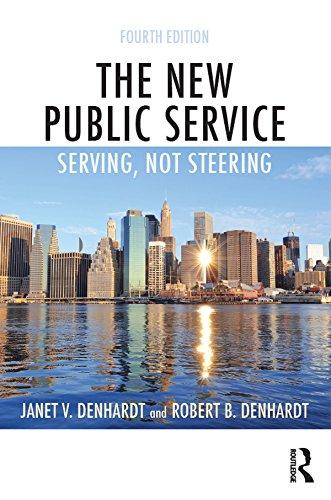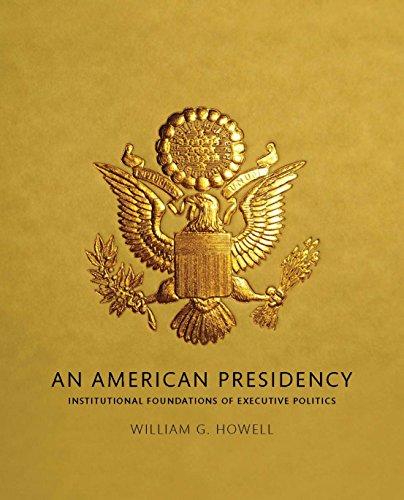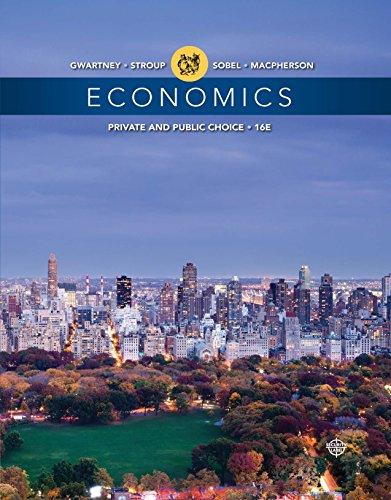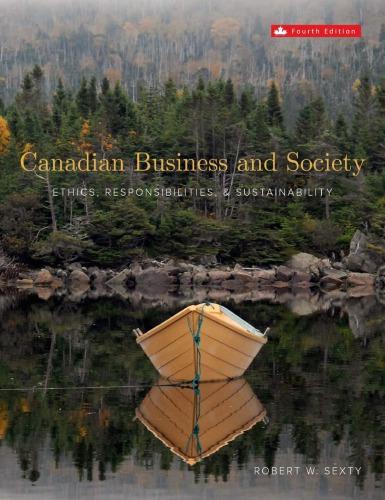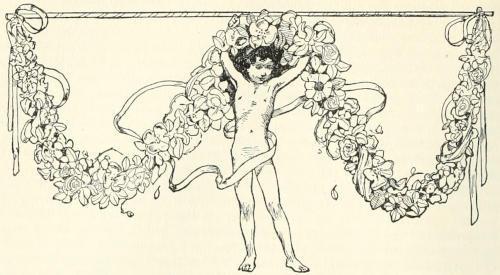Preface
It takes some game and gumption, guts and grit, to craft a public service ethics book. After all, colleagues in the field have already authored fine works on the subject in the past. And yet, we felt compelled to pen this piece because there is a pressing need to readdress this vital area of study, to do something different. Why? The foremost reason, and irrespective of the merits of earlier texts, is the subject itself. Ethics—in all its exemplary and execrable, exhilarating and exhausting forms—matters. It deals with the most gripping question in life: “What is the right thing to do?” As important as it may be to “do things right,” it is essential to “do right things.” Indeed, regardless of how many things a person does in life, what will be remembered is how he or she responded to ethical challenges. The imperative nature of the topic, then, invites investigation.
The second reason for our effort is that we believe existing books are either too short or too long, too broad or too narrow, too management centered or not management focused enough, or too abstract or not abstract enough (!). Surprisingly, their initial (or later) editions do not report recent research or bring other material up to date. But critically, most authors do not consistently engage readers—they focus on “building in” (Latin: instruere) at the expense of “drawing out” (educare). Yet learning is not simply instruction; it is also an unpredictable process of exploring and questioning, a process that draws out the best in the human mind.
Accordingly, this work aims to capitalize on the strengths of past books while avoiding their weaknesses. It does this by reaching not simply for an ordinary compromise, but rather, following Aristotle, for a useful mean between deficiency and excess between “too much” or “too little.” In so doing, the aim is to capture reader interest by featuring in each chapter learning objectives, essential knowledge, skill-building material, telling endnotes, discussion questions, and exercises. The intent is to make the narrative user-friendly and accessible by highlighting dilemmas, challenging readers to resolve them, and enticing them to go beyond the text to discover and confront new issues. The idea is not to stuff but rather to stretch minds. In so doing, we trust that readers will contact us with their suggestions for improvement (jbowman@fsu.edu; jwest@miami.edu). The ultimate goal is to contribute to student confidence as he or she confronts ethical issues in the future.
To what extent have these ambitious objectives been achieved by the book in our hands? While only you, dear reader, can answer that question, preliminary responses to our labors are encouraging, as shown by the endorsements prior to the title page and on the back cover. We can only hope to live up to these high expectations, and invite your thoughtful comments. Indeed, truly “own” this publication by annotating these pages with your ideas, disputes, satisfactions, discomforts, experiences, comparisons, applications, and insights. Then interact with others in a live or virtual classroom to stretch your thinking about the management of
ethics and ethics of management. Ask more of yourself than anyone can ever ask of you; you then will be ready for anything. The way to get the most out of this book is to get into it!
Public Service Ethics: Individual and Institutional Responsibilities introduces readers to this personally relevant and professionally challenging field of study. No matter the topic— the necessity of ethics, intriguing human behavior experiments, provocative approaches to decision making, new theories to understand ethical actions, the role of ethics codes, whistleblowing incidents, corruption exposés, and the grandeur and decay of morality—there is no shortage of controversy. This book discusses these issues, explains how they arise, and suggests what can be done about them. Be advised, however, that it will not, and cannot, provide answers for every case; the study of ethics is not like a cookbook full of recipes. To paraphrase Aristotle, avoid looking for more precision in a subject matter than it will allow.
Our two-man team—combining some 80 years of professional and academic experience (we are much too young to be that old!)—has crafted a volume that
• assumes that readers are or will be line managers or technical experts;
• presents a comprehensive range of topics and issues;
• illustrates these discussions with a blend of current events from business, government, and the not-for-profit sectors; and
• encourages students not merely to peruse the material, but also to apply it.
As members of the American Society of Public Administration, who have widely published in the field (see About the Authors), we believe that while no one is perfect, most people care deeply about ethics, and are willing to think about basic issues when given the opportunity. To that extent, all of us are ethicists. Professionals, it follows, need not only technical and leadership competencies, but also well-honed ethical skills to effectively conduct the public’s business. That belief also motivated us to write the type of text described below.
The initial chapter—the first of three in Part I that explores the foundations of public service ethics—discusses the multiple rationales for examining ethics. Knowing why one is undertaking an activity is the first step to understanding. The second chapter probes various levels of analysis in the examination of ethics. Gaining an appreciation of multiple frames of reference is helpful in comprehending how to study the subject area. The third exploratory chapter defines values and ethics. Understanding these terms is a prerequisite to the rest of the book.
With foundations in mind, Part II investigates approaches to ethics. These strategies emphasize individual-centered (cognitive and virtue) approaches. To gain a perspective on this material, Chapter 4 focuses on an inclusive and hierarchical theory of moral development that can be applied to individuals and organizations. It also introduces a recent contrasting theory from behavioral ethics that relies on psychological tendencies to explain human conduct. Since people do not necessarily make ethically sound choices, Chapter 5 presents a problem-solving strategy that showcases two cognitive decision-making methods: results and rule. Chapter 6, the third and final individual-premised approach to ethics, turns the discussion from results and rule cognitive philosophies to virtue theory, from “head” to “heart.”
Chapter 7 then consolidates the three individual-centered methods to ethics into a tripartite framework—the ethics triad—that provides a comprehensive tool to analyze difficult work issues. This framework is used to examine selected cases throughout the balance of the book. The chapter also introduces the emerging field of behavioral ethics, which directly challenges the usefulness of traditional views of ethical decision making such as those found in the triad. This school of thought argues that the prescriptive character of cognitive and virtue ethics does not adequately explain how people really act in ethical situations. Based on experimental and experiential evidence, the claim is that emotion is at least as important as logic—indeed, may be the basis of rationality—in decision making.
Part III, beginning with Chapter 8, shifts from individual cognitive (“head”) and virtue (“heart”) ethics to organization-centered (“body”) approaches. That is, while the mastery of personally focused ethics explored in Part II is necessary, it is not sufficient for understanding the full scope of ethics, as individual conduct is affected by the environment within which it occurs. The chapter scrutinizes the ethical infrastructure in organizations, and is followed by subsequent chapters dealing with corruption control and whistleblowing in institutions.
Selected issues in public service ethics constitute Part IV of the book, with separate chapters on ethics of elected officials, organizational gaming and performance measurement, atwill employment doctrine, and a case study in open government. These discussions represent a diverse set of topics that illustrate the all-encompassing character of topic area. Chapters 11 and 12, respectively, examine behaviors of political figures and an important dimension of improper institutional conduct. Chapters 13 and 14 explore, in depth, two different issues using the ethic traid. Part V consists of the closing chapter that serves as a capstone for the text. It emphasizes that all people are ethical agents who have the choice between moral grandeur or decay, and provides guidelines for honorable action in the years ahead.
Each chapter includes case studies drawing on actual and hypothetical events that give students the opportunity to apply the analytical frameworks they have learned. Some case studies present scenarios that are then followed by questions to consider; others are applied case studies in which we guide the reader through the application of a decision-making framework to show the thought process behind how a decision might be made. Chapters 13 and 14 are the exception, in that the entirety of the chapter is essentially a case analysis. In addition, end-of-chapter discussion questions and exercises give students further opportunity to think more deeply about ethical issues, as well as apply what they have learned.
Welcome to public service ethics in a book whose subject will affect the future of all readers in their careers. And now for the adventure!
James
S. Bowman and Jonathan P. West
Two roads diverged in a wood, and I— I took the one less traveled by, And that has made all the difference.
—Robert Frost, “The Road Not Taken”
THE EVACUATION OF SWITZERLAND; THE NOMINATION OF DEPUTIES
(1802-1803 A.D.)
The Peace of Amiens, betwixt France and the other belligerent powers in consequence of which the French garrisons were drawn home out of Switzerland, afforded opportunity to the party and provincial spirit to show itself with new vigour. On the 12th of July Montrichard, the French resident in Switzerland, communicated in an extra-official note to the Helvetic landammann, Dolder, that he had received commands from the minister of war to hold himself, with the troops under his orders, in readiness for instant return to France. The landammann laid this note before the then executive council, who were considerably embarrassed by its import, and addressed themselves to Montrichard and to the Swiss ambassador at Paris, to petition for a postponement of the measure. But shortly afterwards, Boizot, secretary of the Helvetic embassy, arrived from Paris with Talleyrand’s note, which fixed for the approaching 20th of July the complete evacuation of Switzerland. It was now out of the question for the heads of the Helvetic government to oppose themselves to a measure invoked by the wishes of a large majority. Accordingly the executive council did its best to assume an unconstrained and easy attitude; and with all expedition voted its liveliest thanks to the first consul for his purpose of withdrawing his troops from Switzerland, which they hailed as the highest proof of his benevolence and respect for the independence of the Helvetic nation.
[1802-1803 A.D.]
The reply of the French minister was couched in terms of disinterested delicacy, which almost seemed ironical. He talked of the French troops as the battalions which the first consul had consented to leave in Switzerland on the conclusion of peace. He based the proposed measure on the confidence entertained by the first consul in the virtues of the Helvetic people, who were now better agreed, as he said, on the principles of political organisation, and in whose attachment the government would find sufficient securities for the maintenance of order and tranquillity. “The Helvetic
government could regard this resolution but as a pledge of the consul’s confidence in its friendly intentions and policy, and of his disinclination to meddle with the internal affairs of other nations.”
It is impossible to assign with any certainty the motives by which this ambiguous language and conduct were dictated. The first consul may have meant to give a popular example of moderation and respect for the faith of treaties; or he may have designed a covert chastisement for the feeble attempts at independence made by the Helvetic government and its refusal of unconditional acquiescence in the projected separation of the Valais; or he may have wished to extort an express prayer for the stay of his troops, or to revive the struggle of parties, and compel the Helvetic government to throw itself into the arms of France, and urge him, as though against his will, to assume the part of arbiter and ruler; or, finally, perhaps, the best solution of his conduct may be found by supposing the combination of all or most of these motives.
Conformably with the system thus enforced upon them, the executive council made known to the Swiss people the departure of the French troops, as a gracious boon the offer of which they had eagerly accepted. In effect, the removal of these troops was performed with such celerity that none were left behind but the sick in the hospitals and a handful of men here and there to guard whatever French property was not of a movable description.
The news of the retreat of the French troops and the ill-concealed uneasiness of the government flew through the country with wonderful rapidity, and everywhere roused the concealed but numerous enemies of the existing order, who had hitherto lurked inactively, as it were in scattered cantonments. The Valais declared itself independent. Uri, Schwyz, and Unterwalden took up arms against the Helvetic government. The town of Zurich, likewise, threw off allegiance to it an example which was speedily followed by Schaffhausen and Bâle. A general levy took place in the Aargau against Bern: the helpless Helvetic government fled for refuge to Lausanne, while a diet was held in Schwyz for the restoration of the
old league. The feeble body of troops in the pay of the government were driven from the interior of the country, and followed their employers into the Vaud: everywhere the opposite factions prepared for active hostilities; the towns planned the destruction of the general government; the peasants armed for their freedom against the pretensions of the towns; and the Pays de Vaud arrayed itself in defence of Helvetic unity. Blood had already flowed, and civil war appeared inevitable, when Napoleon turned his eyes again upon Switzerland, and commanded peace in a tone which was not apt to meet with resistance.
“Inhabitants of Switzerland” (such were the terms of a declaration addressed by him through General Rapp to the cantons of the Helvetic Republic): “you have presented, during two years, a melancholy spectacle. Sovereign power has alternately been seized by opposite factions, whose transitory and partial sway has only served to illustrate their own incapacity and weakness. If you are left to yourselves any longer, you will cut one another to pieces for years, without any prospect of coming to a rational understanding. Your intestine discord never could be terminated without the effective interposition of France. I had resolved not to mix in your affairs; but I cannot and will not view with indifference those calamities to which I now perceive you exposed. I retract my former resolution. I offer myself as your mediator, and will exert my mediation with that energy which becomes the powerful nation in whose name I speak. Five days after reception of the present declaration, the senate shall assemble at Bern to nominate three deputies to be sent to Paris, and each canton will also be admitted to send delegates thither. All citizens who have held public employments during the last three years may also appear at Paris to deliberate by what means may best be effected the restoration of concord and the reconciliation of parties. Every rational man must perceive that my purposed mediation is a blessing conferred on Switzerland by that providence which, amidst so many concurring causes of social dissolution, has always preserved your national existence and independence. It would be painful to think that
destiny had singled out this epoch, which has called to life so many new republics, as the hour of destruction to one of the oldest commonwealths in Europe.”
The Helvetic senate instantly replied to this announcement by declaring that it received, with lively gratitude, this new proof of the friendly dispositions of the first consul, and would conduct itself in all points in conformity with his wishes. In a proclamation addressed to the Helvetic people, after some allusion to the mighty and uplifted arm of the mediator, it recommended union, tranquillity, and calm expectation. The cantonal diets met to elect deputies to Paris. The several communes also were permitted to despatch delegates thither at their own expense. The mandate of Napoleon and the presence of his soldiers induced conflicting parties to suspend their hostilities, and tacitly, at least, to acquiesce in his mediation, as they could come to no agreement with each other.
On the 10th of December, 1803, Swiss delegates were received in the office of foreign affairs at Paris, to hear a note of Bonaparte read, in which he addressed them as president of the French and Cisalpine republics, and laid down the basis of his intended mediation. “A federal constitution,” he said, “is a point of prime necessity for you. Nature herself has adapted Switzerland for it. What you want is an equality of rights among the cantons, a renunciation of all family privileges, and the independent federative organisation of each canton. The central constitution may be easily arranged afterwards. The main points for your people are neutrality, promotion of trade, and frugal administration: this is what I have always said to your delegates when they asked my advice; but the very men who seemed to be the best aware of its truth turned out to be the most obstinately wedded to their privileges. They attached themselves, and looked for support, to the enemies of France. The first acts of your insurgents were to appeal to the privileged orders, annihilate equality, and insult the French people. No party shall triumph; no counter-revolution take place. In case of violation of
[1803-1813 A.D.]
neutrality, your government must decide upon making common cause with France.”
On the 12th, Bonaparte received a select number of the Swiss deputation to whom he further addressed himself as follows: “The only constitution fit for Switzerland, considering its small extent and its poverty, is such a one as shall not involve an oppressive load of taxation. Federalism weakens larger states by splitting their forces, while it strengthens small ones by leaving a free range to individual energies.” He added, with an openness peculiar to great characters, and unequivocally indicative of good will, “When I make any demand of an individual, he does not often dare to refuse it; but if I am forced to apply myself to a crowd of cantonal governments, each of them may declare itself incompetent to answer. A diet is called: a few months’ time is gained; and the storm blows over.”
Almost every word of the first consul during these negotiations has historical value. Most of his expressions wear a character of greatness; all of them afford a clue to the system on which he acted. One or two passages, taken at random here and there, will suffice for a specimen: “It is the democratic cantons which distinguish you, and draw on you the eyes of the world. It is they which do not allow the thought of melting you up with other states to gain any coherence or consistency. The permission to settle wherever they please, in pursuit of their vocation, must be extended to all natives of Switzerland. The small cantons are said to be averse to this principle; but who on earth would ever think of troubling them by settling amongst them? France will re-open a source of profit in favour of these poorer cantons, by taking additional regiments into her pay. France will do this, not because she needs additional troops but because she feels an interest in attaching these democracies.”
THE ACT OF MEDIATION (1813 A.D.); CABALS FOLLOW NAPOLEON’S FALL
The Act of Mediation, which resulted from these conferences, restored the old federative system; but not without introducing very considerable improvements. The amnesty announced by it precluded all persecutions, and the new agitations necessarily arising from them. All servitude and all privilege were abolished; while equality of rights and freedom of industry were established. The mischievous freedom formerly enjoyed by the several cantons of entering into hostilities or alliances against each other was quite put an end to. In future, they could only use their arms against the common enemy; and the objects of the whole league could no longer be frustrated by the humours of its individual members.
The dissolution of the Helvetic general government followed naturally on the completion of the above-mentioned arrangements; and soon afterwards Napoleon recalled his troops from Switzerland. The people, in almost every part of the country, returned quietly to their usual occupations, and tendered their allegiance to the new order of things. In the canton of Zurich alone several communes refused the oaths; complaining of the difficulties newly thrown in the way of the redemption of tithes, ground-rent, and other burdens. They would listen to no friendly representations; but committed acts of violence on unoffending functionaries, set fire to the castle of Wadenschwyl, and finally took to arms. The prolonged disorders of former years had accustomed them to lawless self-defence; but the insurrection was soon suppressed by the aid of the neighbouring cantons, combined with the well-affected part of the Zurichers.
The ringleader John James Willi, shoemaker in the village of Horgen, and others of his more conspicuous comrades, were punished with death. The less distinguished rioters suffered imprisonment, and forty-two offending communes were visited with a war-tax of above 200,000 florins. It was well that the first flame of revolt was speedily extinguished, before it had time to spread itself through the country. Parties remained everywhere unreconciled; and each imagined nothing to be required for their predominance but the fall of the new order of things. The friends of Helvetic unity still murmured at the cantonal partition of the country. The monasteries
murmured as they felt their existence threatened; and Pancrace, the ci-devantabbot of St. Gall, openly stigmatised the inhabitants of that district as contumacious vassals of the empire. Many of the country people murmured, who wished for Landsgemeinde, on the model of the original cantons. Many patrician and city families murmured that their privileges were swept away, and the peasantry no longer their subjects. The majority of the people, however, wished for nothing but peace and quiet, and decidedly adhered to the existing order of things, and the rights which they had acquired under that order.
Thus the peace of the country remained for the most part undisturbed; and a series of comparatively prosperous years followed. The energies of the Swiss had been awakened by the years of revolution and of civil war, and displayed themselves in a hitherto unprecedented degree. They no longer stood apart from each other as formerly, like strangers; but had been made better acquainted by the storms of social collision. The concerns of each canton were now interesting to all. Journals and newspapers, which had formerly been suppressed by timid governments, instructed the people in useful knowledge, and drew its attention to public affairs. The Swiss of all cantons formed societies for the furtherance of objects of common utility, for the encouragement of various arts and sciences, and for the maintenance of concord and patriotism. The canal of the Linth formed a lasting monument of this newly reawakened public spirit.
Since the people had ceased to be viewed as in a state of perpetual infancy a new impulse was given to trade and industry, which were now no longer cramped and confined, as formerly, by corporate restrictions and monopolies. The participation in public affairs allowed to all free citizens enforced a mild and equitable conduct on the governments. Schools were increased and improved throughout the country; the military force was newly organised; and, on the whole, a greater number of laudable objects were provided for in the space of ten years than had been thought of in the previous century.
When the throne of Napoleon sank under the power of the allies, the public-spirited part of the Swiss nation fondly imagined that the hour was come in which their country’s honour and independence might be established on a firmer footing than ever. To preserve the benefits gained to the land by his act of mediation was the wish of a large majority of the people. If the Swiss had sometimes felt, along with others, the iron arm of that formidable despot (who had, however, spared them more than any neighbouring population), yet his gift of a constitution had become deservedly dear to them. It had dried up innumerable sources of discord. Under it a fellow-feeling, never before experienced, had been diffused in the same degree as individual pride had been humbled. The cessation of a state of subjection, wherever it had before existed, had decupled the number of confederates, and all restraints on free communication betwixt one canton and another had been removed.
The cantons sent their contingents for the protection of the frontiers, voted extraordinary imposts for their maintenance, and a diet was assembled at Zurich with unanimous instructions from its constituents. This body declared with one voice its resolution “to observe a conscientious and impartial neutrality with regard to all the high belligerent powers,” expressing, at the same time, its full anticipation that “the same would be acknowledged upon their part.” It addressed itself as follows to the confederates: “The great and only end of all our endeavours is to maintain this neutrality by every means in our power; to protect our country’s freedom and independence; to preserve its soil inviolate, and to defend its constitution.” The senate of Bern expressed itself as follows: “Our object is to guard the pacific borders of our country inviolate from the march of foreign armies; we are unanimously resolved, however, at all events, to maintain tranquillity, order, and security in our canton by all the means which stand in our power.”
Such was the general sense of the Swiss people. Not such, however, was the sense of the great families in the once dominant towns of the confederation. Many of these wished to see their country invaded by foreign armies, by aid of which they hoped to
restore the old league of the thirteen cantons, with all its hated appendages of sovereignty and servitude, which had vanished from the face of the land in 1798.
The Swiss delegates were received in a friendly manner by the emperor of Austria and the king of Prussia; but no direct recognition of their neutrality was vouchsafed to them. The satellites of these monarchs gave them distinctly to understand that Switzerland was regarded and would be treated as nothing else than as a limb of the French system. A large Austrian force was collected on the frontiers, particularly in the neighbourhood of Bâle; yet many still believed that a determined vindication of neutrality would not be put down by violence. In the meantime, the Swiss delegates were stopped at Fribourg in Brisgau on their return homewards from Frankfort, and their letters were intercepted. A general enervation seemed to have spread itself over the conduct of the affairs of the confederation at this crisis. There is no ground for supposing that the men who led their forces and presided in their governments acted the part of secret conspirators against the order of things which they professed to defend. But when the overwhelming powers of the allies came pouring in upon them; when these were joined by kings who owed their crowns to Napoleon; when even the French ambassador dissuaded reinforcement of the frontier cordon—when, in short, the ancient state of things renewed its sway on every side, while a decided popular will showed itself nowhere, opposition was in a manner overwhelmed by the force of circumstances.
A proclamation, couched in terms of mildness and of amity, was issued by Prince Schwarzenberg, the Austrian commander-in-chief; and at the same time Count Capo d’Istria declared, on his arrival in Zurich, that the monarchs could not recognise a neutrality which, in the existing situation of Switzerland, must be nothing more than nominal. The armies of the allied powers hoped to find none but friends there. Their majesties pledged themselves solemnly not to lay down their arms until they should have secured the restoration to Switzerland of the territories wrested from her by France—a pledge which we shall presently see was adhered to but indifferently. They
disclaimed all wish to meddle with her internal constitution; but at the same time could not allow her to remain under foreign influence. They would recognise her neutrality from that day in which she became free and independent.
The Austrian army marched over the Rhine on the 21st of December, 1813, through the territories of Bâle, Aargau, Solothurn, and Bern, into France. During the first months of the following year the burdens and even the dangers of war were felt very severely in the northern and western parts of Switzerland, particularly in Bâle, which received much annoyance from the obstinate defence of Hüningen, and the hostile disposition of the commander of that place. Geneva, too, while she welcomed in anticipation the new birth of her ancient independence, saw herself suddenly surrounded with the actual horrors of warfare, and threatened with a regular siege. The continual passage of large bodies of troops brought malignant fevers and maladies in their train, and it became more and more difficult to supply them with provisions.
On the entrance of the Austrian troops, Bern set the example of abolishing the Act of Mediation, and reclaimed the restoration of the predominance which she had previously enjoyed in the Helvetic body. The example was followed first by Solothurn and Fribourg, and then by Lucerne. In Zurich, too, the diet declared the Act of Mediation, by virtue of which it was sitting, null and void, and drew up a plan for a new confederation of the nineteen cantons. But this was not enough for some of the men in power at that time, who demanded nothing short of the restoration of the old league of the thirteen cantons, and had already summoned the Pays de Vaud and the Aargau to return under the government of Bern. These cantons, however, resolutely rejected the proposal.
The diet, which was again convoked at Zurich and consisted of delegates newly elected by all the nineteen cantons, was now the only feeble bond which kept the Helvetic body together. Interested voices were raised on every side for annihilating or mutilating the last constructed cantons, which for sixteen years had enjoyed the
boon of freedom and independence. Zug demanded a part of its former subject lands from the Aargau; Uri, the Valle Levantina from the canton of Ticino; Glarus, the district of Sargans from the canton of St. Gall; the prince abbot Pancrace, his former domains and sovereignties in the Thurgau; Schwyz and Glarus combined to demand compensation for their privileges over the districts of Utznach, Gaster, Wesen, and Ersatz; Unterwalden, Uri, and Schwyz united in a similar demand for compensation for the sovereign rights which had formerly been possessed by them in Aargau, Thurgau, St. Gall, and on the Ticino.
In these cabals and commotions Zurich, Bâle, and Schaffhausen displayed the least of prejudice or passion; while the Aargau and the Vaud showed themselves worthy of their freedom by the spirited resolution of their people. In the lands and towns of Bâle, Solothurn, and Zurich it was proposed to espouse the cause and rally round the standard of the Aargau. Bern, however, avoided open hostilities, and even offered to recognise the independence of the Vaud on certain conditions, which were rejected by the latter. Aargau now made menacing demonstrations, and a dangerous ferment showed itself in the Oberland. Here, as in many other places, the jealousy and suspicion of the various parties came into play, in proportion as discussion was broached on the limits to be assigned to the rights of the people and their governments. News was daily received of scattered plots and insurrections, of imprisonments and banishments, in various places. The town of Solothurn called for the protection of a Bernese garrison against the threatened attacks of its own people. Swiss troops were precipitately despatched to the banks of the Ticino to prevent the breaking out of civil war; while other troops were sent into the canton of St. Gall to put an end to a scene of absolute confusion.
While Switzerland was thus given up to a state of such disquietude that blood had already flowed in more than one district, and the gaols of several towns were filled with prisoners, the plenipotentiaries of the great powers were sitting in congress at Vienna, to establish the
[1815 A.D.]
peace of Europe on a durable foundation. The allies had already allowed the addition to the Helvetic body of Geneva, as well as of the Valais, and the Prussian principality of Neuchâtel. Swiss delegates made their appearance with equal promptitude in the imperial metropolis on the Danube, as they had done eleven years before in the capital of France.
But the politics of Europe moved no faster at Vienna than those of Switzerland did at the diet of Zurich. No settlement of Swiss affairs had been made, when the sudden news of Napoleon’s landing from Elba and his triumphal march through France awakened European diplomacy once more from its slumbers. The diet called to arms the half contingent of fifteen thousand men for the defence of the frontiers. Two battalions of the Vaud were detached hastily to Geneva, and the same canton received as friends and comrades the troops of Bern, against which it had taken up arms a month before. The most important elements of discord seemed to have disappeared—the most inveterate enemies to be reconciled.
On the 20th of March, 1815, the definitive arrangements of the allied powers were promulgated. The existing nineteen cantons were recognised, and the increase of their number to two-and-twenty confirmed, by the accession of Geneva, Neuchâtel, and the Valais. The canton of Vaud received back the Dappenthal, which had been taken from it by France. Bienne and the bishopric of Bâle were given to Bern by way of compensation for its former sovereign rights over the Vaud. One moiety of the customs received in the Vale Levantina was assigned to Uri; the prince abbot Pancrace and his ci-devant functionaries were indemnified with 8000 florins yearly. A decision was also given on the indemnification of those Bernese who had possessed jurisdictions in the Pays de Vaud, and on many other points in dispute. The complaints of the Grisons alone were disregarded—Chiavenna, the Valtellina, and Bormio, which had now become the property of Austria, were neither restored nor was any compensation for them given, notwithstanding the clause to the contrary in Prince Schwarzenberg’s proclamation.
The cantons now remodelled their respective constitutions in the midst of agitations of all kinds. Those in which the supreme power is assigned to the Landsgemeinde for the most part removed the restrictions on the popular prerogative, which had been introduced by the Act of Mediation, and approximated anew to pure democracy. In the city cantons the capitals recovered, though in various modifications and proportions, a preponderance in the system of representation. Even in these privileged places, however, many friends of the public weal remained true to the conviction tried and proved by past experience (and about to receive after no long period additional confirmation from the march of events)—that participation of the lesser towns and rural districts in public functions was a requisite condition for the permanence of tranquillity; and that the members introduced from these remoter parts of the country would form vigorous roots of the slender stem of authority, and fix them wide and deep in a republican soil.
SWITZERLAND DEVELOPS ALONG NEW LINES
In 1817, the confederates were led by the invitation of the emperor Alexander into a signal deviation from the policy of their forefathers. They entered into a close alliance with Austria, Russia, and Prussia; and allowed themselves to be mixed up with the system of the great powers, by giving their adhesion to the Holy Alliance, unmindful of the lessons left by the Swiss of old times.
[1817-1823 A.D.]
On the conclusion of the War of Liberation from Napoleon, an opinion which the allied powers had encouraged by their promises became prevalent through great part of Germany—that the efforts of the people should be requited by the grant of representative constitutions. The realisation of this object was pursued by open and secret means, which soon aroused attention and mistrust on the part of the governments. Investigations were set on foot, followed up by penal inflictions; and many of the accused parties made their escape into Switzerland. A similar course was taken by some Italians, on the
suppression of the Piedmontese revolts and the abortive revolution of Naples. Natives of France, moreover, who had given offence to their government, either by republican principles or by adherence to the cause of Napoleon, in like manner sought a place of refuge in Switzerland. These occurrences did not fail to give umbrage to several cabinets, which was increased by the friendly welcome and assistance afforded to the fugitives from Greece. It never seemed to occur to foreign potentates what a blessing in the vicissitudes of European affairs was the existence of a land to which political victims of all parties might resort as an inviolable sanctuary.
The year 1823, that of the French invasion of Spain under Louis XVIII, seemed an epoch of especially unfriendly dispositions in more than one European court against Switzerland. There were personages who would willingly have used these dispositions to effect some limitation of Helvetic independence; but their influence was either insufficient for that purpose in the cabinets to which they belonged, or Europe seemed as yet not ripe for success in such an experiment. Meanwhile the remonstrances and demands of continental powers afforded matter of anxious consultation to the Helvetic diet; and their usual subjects of discussion were increased by two new topics—foreign police and surveillance of the press.
It was resolved that both these points touched the prerogatives of the separate cantons, and therefore did not admit of decision at any general diet. An invitation was accordingly issued to the governments of all the cantons, exhorting them to adopt vigorous measures, in order that nothing might find its way into newspapers and journals inconsistent with proper respect to friendly governments. With regard to foreign police it was proposed to take measures for preventing the entrance or residence of such strangers as had left their country on account of crimes or efforts at disturbance of the public repose; and for providing that no foreigners should be admitted except such as could show certificates or passports from their respective governments.
In many of the cantons these demands were met by a ready alacrity not only to urge their execution in their full extent but even to improve on them by subjecting discussion of domestic as well as of foreign affairs to strict surveillance. On the other hand, in more enlightened parts of the confederacy, it was thought that public discussion and the old right of sanctuary should be guarded from every species of encroachment. The diets continued to busy themselves with deliberations on both subjects. Returning tranquillity diminished the uneasiness of the cabinets; and, by consequence their inquisitive and minute attention to Switzerland. Individuals lost the importance which had formerly been ascribed to them, and the sojourn of strangers in Switzerland again became freer. The press occasioned more prolonged discussions at the diets and in several of the councils; but in the midst of these it obtained more and more freedom, and in some districts shook off all its former restrictions.
During these years an interest in church affairs diffused itself amongst laymen, as well as amongst theologians by profession. In the educated classes religious indifferentism became less frequent; while the genuine spirit of tolerance made progress. This tendency, like every other widely extended mental movement, had its questionable as well as its pleasing features. Shocking ebullitions of fanaticism are reported to have taken place in Zurich, Bern, and other cantons. A footing was gained in Fribourg and the Valais by the revived order of Jesuits; and the friends of human improvement could not regard without anxiety their influence in ecclesiastical matters and in education.b
REACTION AND REFORM; EFFECTS OF THE REVOLUTION OF JULY
The reaction making itself manifest throughout Europe in the third decade of the nineteenth century appeared also in the individual cantons of Switzerland and in its general government. The same disparity between the rights of the nobility and those of the people which existed in northern Germany was to be found here. As we
have seen, the cantons for the most part had an aristocratic government in which a few favoured families, the patricians, had so decided a preponderance that there was hardly a shadow of representation of the people. As at an earlier period in other countries there had been a distinction between Stadt and Amt (city and subject land), so at this time in Switzerland the same distinction was still made between Stadtand Landschaft(city and rural district). The citizens belonging to the latter were permitted to send but a few members to the “great council” of a canton.
With such privileges in the hands of the patrician families the administration of the state was as bad as possible. Offices were apportioned more according to birth than merit, the finances were not always managed in the interests of the state. The evils of the administration of justice had become proverbial. Federal laws for the regulation of domestic intercourse and commerce were not thought of. The diet which met at one of the three leading places (Vororte)— Bern, Zurich, and Lucerne—did not fall behind the German diet in reactionary sentiment, adhered closely to the system of Metternich and sent its men as mercenaries to France and Naples that it might provide appointments as officers for the young patricians.
The younger generation, such as was growing up at the universities and elsewhere, would not content itself with such republics. Everywhere the opposition of the liberals was becoming active against the rule of the oligarchies. Since the uprisings in northern Germany, especially, the demand for constitutional reforms became still more general. Societies were formed and the liberal press did not tire in proclaiming the principles of the new era; political equality, abolition of all privileges, equal representation for all the citizens of a canton, freedom of the press, etc. Bern, at that time the chief place (Vorort, capital), whose government was the most aristocratic of all, September 22nd, 1830, sent a circular letter to the governments of the cantons urging them to proceed against the press and to hold fast to the old constitutions. This only fanned the flame. In the months of October and November assemblies of the notables and of
[1830-1832 A.D.]
the people were held in almost all the cantons, the principles of new constitutions were determined upon, and in a few weeks the governments were forced to accept them.
Already before the revolution of July, in May, 1830, the oligarchal-ultramontane government in Ticino was overthrown and a different one erected on a democratic basis. The new constitution was accepted by the people in March, 1831. Events took a similar course in Zurich, where it was chiefly a matter of the relation of the rural districts (Landschaft) to the too powerful city; in Aargau, St. Gall, Lucerne, Solothurn, Fribourg— where the hierarchical aristocracy, supported by the Jesuits and congregationalists (Congregisten) who had been driven out of France, mustered out soldiers but was overthrown together with everything belonging to it; in Vaud—where, acting with the hot-bloodedness of Frenchmen, the people called out to the great councillors (Gross-räthe) of Lausanne, “Down with the tyrants!” and established a radical constitution; in Schaffhausen and in Bern—where the deposed government for a time had the mad plan to maintain itself by help of the discharged Swiss soldiers of Charles X; in Bâle—where bloody encounters twice occurred, and where for the adjustment of the quarrel federal troops had to take station, the great council of the city consented rather to a separation from the rural districts than conform to their demands. Thus there

PLACE DE LA PALUD, LAUSANNE
were formed here in 1832 the two half-cantons, Bâle (city) and rural Bâle (with its government at Siestal). Similar desires for separation also showed themselves in Schwyz and Valais, but they were laid aside after embittered conflicts. On the other hand, the old constitution remained in force in Uri, Unterwalden, Zug, Geneva, Glarus, the Grisons, and Appenzell. In Neuchâtel the liberal party would no longer recognise the king of Prussia as the sovereign, but was suppressed in 1831 by the energy of the Prussian general Von Pfuel; and the movement ended in a victory for the existing government.
SIEBENER KONKORDAT; DISPUTES OVER ASYLUM AND RELIGION
The party which in 1831 had secured a more liberal form of government in a majority of the cantons strove also to achieve reforms in the federal constitution. At the diet of 1832 it obtained the appointment of a commission which was to revise the federal statutes and present its conclusions to an extraordinary session of the diet of 1833. The liberal cantons, Bern, Aargau, Thurgau, St. Gall, Solothurn, Zurich, and Lucerne, concluded the agreement of the Seven (Siebener Konkordat) for the preservation and attainment of popular sovereignty. On the other hand the conservative party, Uri, Schwyz, Unterwalden, Valais, Neuchâtel, and the city of Bâle, united in the league of Sarnen (Sarner-Bund). In conjunction with the neutral party these succeeded in 1833 in balking federal revision. As a result their hopes and demands increased. Armed bands from Schwyz and the city of Bâle, July 30th, 1833, entered Outer Schwyz and rural Bâle to compel the submission of these seceding districts. The consequence was that Schwyz and Bâle city were occupied by federal troops and the league of Sarnen was declared annulled. The separation of Bâle into two independent cantons was recognised and the reunion of Schwyz was declared—this, however, with complete equality of rights.
[1832-1845 A.D.]
The gathering of many fugitives from Germany, Poland, and Italy, who found an asylum in republican Switzerland but who at times abused hospitality, brought on complications with foreign powers. The most active among these revolutionists was Giuseppe Mazzini of Genoa, who in spite of total lack of any promise of success was continually setting on foot new attempts at insurrection, to keep his Italian fellow countrymen in practice. “Young Italy” which he founded at that time caused an inroad of about four hundred men under General Romarino into Savoy in order from this point to revolutionise Piedmont and the rest of Italy. After the occupation of several villages the undertaking foundered because of the indifference of the people. From this time on Switzerland in the eyes of the outside world appeared as the hearth of radicalism, especially as Mazzini wished to extend his activity to the whole of Europe and for the republicanisation of this continent founded “Young Europe.” Now it rained diplomatic notes. The neighbouring powers complained of the abuse of the right of asylum and held out the prospect of the most hostile measures, if Switzerland would not expel the participants of the Italian raid and keep a better watch over the rest. Louis Philippe went farthest in severity toward Switzerland and even threatened her with war if she would not expell Louis Napoleon, who had returned from America, and was living in Arenenberg as a citizen of Thurgau. The latter left Switzerland for England of his own accord.
Even more important were the consequences of the religious conflicts. The calling of Doctor Strauss from Würtemberg to the University at Zurich in 1839 roused the rural population to arms and caused the fall of the liberal government at Zurich; this did not again secure supremacy till 1845. More significant was the question of the convents. In a conference at Baden in 1834 seven cantons had determined upon the subjection of the church to the authority of the state and the employment of the convents for purposes of general usefulness. Most violent was the quarrel over this matter in the canton Aargau, whose radical government finally, in 1841, closed all the convents, among others the wealthy one of Muri, and took
possession of the property for “purpose of instruction and benevolence.” Among the bigoted Catholics there was great excitement over this. It led to a victory of the ultramontane party in Lucerne and Valais in 1844. This party called the Jesuits to Lucerne to take charge of the instruction of youth.
In this affair the wealthy farmer Joseph Leu and Sigwart Müller showed themselves especially active. The Jesuits had also established themselves in Fribourg and Schwyz. To expel them from Switzerland was the aim of all the liberal cantons. The expedition of the free lances (Freischaren) of 1845 under the leadership of Ochsenbein of Bern met with failure. The government of Lucerne, still more embittered by the murder of Leu, assumed a terrorising attitude, demanded the punishment of the free lances, and restoration of the convents of the Aargau; and when no attention was paid to these demands concluded with Schwyz, Uri, Unterwalden, Zug, Fribourg, and Valais a separate league (Sonderbund) for mutual protection against external and internal enemies. This league within a league was not to be endured; and, since the liberal cantons were in the majority, they decided at the diet in Bern, in July, 1847, upon the dissolution of the Sonderbund, as being contrary to the Pact of Federation (Bundesvertrag) and upon the expulsion of the Jesuits. As the fanatics of Lucerne failed to obey the diet, orders were given for federal action against the cantons of the Sonderbund. The federal army was mustered in and the experienced general Dufour of Geneva was placed at its head.c
[1845-1847 A.D.]
THE SONDERBUND WAR (1847 A.D.)
Europe had followed with an attentive eye the events we have just related. Peoples were preoccupied with them, courts saw in them a source of serious anxiety. All, taking the Vienna congress as their point of view, desired a federative, neutral, and peaceable Switzerland. From this point of view the cause of the Sonderbund
[1847 A.D.]
seemed to them to have justice on its side. But everywhere, owing to diversified interests, the language differed. “A fine country and a good people,” said King Louis Philippe, “but it is in a bad way. Let us keep from interfering. To hinder others so doing is to render them a great service.” Guizot nevertheless proposed to occupy himself in Swiss affairs in a conference to be held at Paris or in London, but he was unsuccessful. Once Austrian troops on the one hand, French on the other, drew near Switzerland, but they were speedily recalled to their cantonments. Metternich would willingly have taken the lead, had he not known that France could not leave Austria to interfere alone. Thenceforth, of the two powers, one contented itself with secretly aiding the Sonderbund by relays of arms and money, the other with lavishing encouragements on the seven cantons through its ambassador.
Prussia hesitated, recommending Neuchâtel prudence. Czar Nicholas could not understand an intervention unless the powers had sixty thousand men behind them. Great Britain would not interfere at all. Under the ministry of Lord Palmerston, a young statesman named Peel, son of the illustrious minister of that name, joined the Bear Club at Bern where radicals met. At Rome, the French ambassador, Rossi, an ancient deputy of the Geneva diet, was charged to solicit Pius IX to recall the Jesuits from Lucerne. It was thought both in London and Paris that the best means of restoring peace to Switzerland was to take from the radicals their principal grievance and their flag. The holy father contented himself with letting the Swiss know that he would remain passive in the strife (passivesehaberedecrevit).
Switzerland, under these circumstances, was persuaded that the moment had come frankly to declare to Europe her intention of being sole interpreter of her Pact of Alliance; to have done with the questions that agitated her; and to constitute herself on the basis of an enlarged and equitable democracy, which would soon see her the first on the road towards which all European peoples were proceeding. She knew the states which lavished advice on her to be torn by a revolutionary spirit and incapable of uniting against her in
a common resolution. It was under the influence of this thought that Ochsenbein opened the confederation diet on the 5th of July, 1847.
Although only the son of a hotel keeper, without instruction in the classics, but gifted with prompt and pleasing intelligence, he presented himself unembarrassed before an assembly wherein the heads of the two parties dividing Switzerland were sitting, and at which the majority of ministers from foreign powers assisted. Frankness characterised his discourse. Foreseeing a European crisis —“Our modern world,” said he, “rests on worm-eaten columns, on institutions that have for support only the powers of habit and interests, a construction that the slightest storm will make a ruin. Well, this storm approaches; the colossus is quite aware of it. He sleeps a dangerous sleep.” Descending from these heights to questions of the moment, the president of the diet proclaimed the right of the majority, whom Switzerland had always recognised. When this majority had been declared, he courteously invited all the cantons to join with it. Callame, a Neuchâtel deputy, exposed in language firm and untouched by passion the gravity of events that had given place to a separate alliance, and demanded that they should leave those who had concluded it the time to convince themselves that it was no longer necessary.
In reality, the vote of the majority meant a declaration of war. The diet adjourned so as to give the parties time either to unite or to finish their preparations for hostilities. It reassembled on the 18th of October. Two delegates, envoys of peace, were sent from each of the Sonderbund cantons, but they met with scant welcome: one-half wanted war.
ColonelDufour is Made Commander ofthe Army
On the 29th of October the deputies from the seven cantons left Bern, and on the 4th of November it was decided that the decree ordering the dissolution of their alliance should be executed by arms. The diet put on foot fifty thousand men, and entrusted the command, with the rank of general, to Colonel Dufour, of Geneva.
No name in the army was more respected, none had more weight. Dufour did not belong to either side. In sympathy he was conservative, but was none the less a man of progress. He had been in the wars and published writings on military science, fruits of a long and wide experience. No chief knew as he did the canton militia, over whose manœuvres he had for a number of years presided in the camp at Thun, as chief instructor of the engineering corps. To these warlike qualities he united the virtues of a man of peace. He was occupied in the elaboration, on a plan he had conceived, of the fine map of Switzerland which bears his name, when he was called to quit the pursuits of the student for the field of battle. He comprehended the danger to his country. He clearly perceived his duty, and he thought only of accomplishing it.
In accepting the first command he made what he considered necessary stipulations, demanding a sufficient number of troops and absolute power. All this he obtained, though not without some resistance. He was given 100,000 men and 260 field pieces. This army he distributed into seven divisions. In the choice of superior officers, he exacted that he alone should judge of their capacity without any regard to political opinion; this was the way both to get excellent officers and to prepare for what he considered to be his duty—the quieting of hatreds after the struggle. In a short time there was no longer question of politics in the army. Addressing once his heads of divisions, “I shall never depart,” he said, “from the laws of moderation and humanity. A stranger to political agitation and faithful to my military duties, I shall try to establish order and discipline in the federal troops, to make public and private property respected, to protect the Catholic religion in her ministers, her temples, and her religious establishments—in a word, to do everything to soften the inevitable evils of war. If violence be used, let it not come from us. After fighting, spare the vanquished; however strong one may be, relieve the despair of the enemy: then we can congratulate ourselves after the fight on never having forgotten that it was between confederates.”
These instructions being made known, the general resolved to trust nothing to chance, and to make no offensive movement unless sure of the superiority of his forces; this he recognised as the surest way towards a speedy ending with the least bloodshed. Soon the confidence he inspired began to show itself. The city of Bâle, long undecided, sent him excellent artillery. Neuchâtel and Appenzell alone continued to take no part in the war. The promptitude with which the army got under arms, well ordered, well clothed, and well equipped, astonished foreigners. The redivision of troops was necessitated by the situation. The country occupied by the Sonderbund formed three distinct masses—Fribourg, the original cantons, and Valais. Dufour proposed to attack them separately, and to begin with Fribourg.
Preparations ofthe Sonderbund
The powers held exaggerated ideas of the Sonderbund forces. It could hardly put on foot more than thirty thousand regular troops. The Landsturm, it is true, meant a more considerable number of men, but not having received sufficient organisation could not be compared to the excellent reserves of the large cantons, and did not give the help expected of them. Far from one another, the separatist states could only with difficulty lend one another aid. The original cantons tried nevertheless to keep their ways open by means of boldness in offensive actions. Even before the diet began its campaign, the men of Uri seized the St. Gotthard passes (November 3rd); threw themselves across the Levantina, surprised three thousand Ticinese encamped at Airolo, and drove them as far as the Moesa bridge. But arrived at this point, they found themselves face to face with Grisons and Ticino militia, superior to them in number, who stopped their progress. The expedition had no other result than that of holding back two thousand excellent soldiers from the places where decisive blows were to be struck. Another attempt, made from Lucerne, to penetrate into Catholic Aargau and to free Fribourg, by means of a diversion, had no better success.
The Capitulations ofFribourg andLucerne Endthe Sonderbund
Without taking much account of these movements, Dufour occupied himself only in concentrating his forces so as to surround the Sonderbund states, on all their accessible frontiers. His provisions were assured, his hospital organised. Immediately upon the rupture being announced, Colonel Ochsenbein, who presided over the diet, left office to put himself entirely at the disposition of the general-in-chief. The general placed him at the head of the Bernese reserves, which composed his seventh division and which he assimilated with the active troops. He stationed them first on the Lucerne frontier, and when he arranged to draw near Fribourg, he called Ochsenbein to advance towards that capital, in order to make the enemy think he would attack from the eastern side. However, twenty thousand men and fifty-four artillery pieces, under colonels Rilliet, Burkhard, and Donatz, advanced from the north and west by different routes, and kept their movements secret that they might arrive on the same day at the gate of Fribourg. On the 13th the town was surrounded. An experienced leader, Colonel Maillardoz, had raised defences all round, and they had prepared to attack these exterior forts when the Fribourg government, recognising the impossibility of resistance, gave up the town, dismissed the troops, and renounced the Sonderbund. The taking of Fribourg would not have cost the federal army a single man if through a mistake a Vaudois troop had not rushed under fire from the Bertigny redoubt, which resulted in seven killed and a large number wounded.
As soon as Fribourg had capitulated the general confided to Colonel Rilliet the care of occupying the military cantonments and watching the entrance of Valais. He himself hastened to Aarau, to prepare for the investment of Lucerne. Two rivers, the Emme and the Reuss, protected this town. The bridges on these rivers had been broken or fortified. The ground on which it was foreseen that the most serious engagements would be delivered was the labyrinth which stretches from the Reuss to the Lake of Zug; bristling with wooded hills, where passage had been stopped by barricades and
mines had been laid in the defiles. It was necessary to attack these strong positions, because they served as a link between Schwyz and Lucerne, and success on this point was decisive, whilst elsewhere it was not so. The leader whom the five cantons had put in charge of their militia, Ulrich de Salis-Soglio, understood this, and went to these places. The forces he could dispose of were some twenty thousand regulars and a similar body of the Landsturm. Salis had learned warfare in fighting Napoleon. A sincere Protestant, he had nevertheless devoted himself to a cause which had his political sympathies, but of which he despaired.
A resolution being taken to force his entrenchments, Dufour set five divisions of his army on the march from the various points they occupied, giving them Lucerne as object. Ochsenbein’s reserves went down the Emme valley, overcoming a lively resistance. The Burkhard and Donatz divisions approached the Emme and the Reuss between the bridges of Wolhusen and Gislikon, at the same time that colonels Ziegler and Gmur at the head of some odd thousands of men attacked Salis in his intrenched camps. Ziegler mastered the Gislikon bridge and the Honau defiles. Gmur, after having received on his march the submission of Zug, scaled the heights of Meyers Kappel. Everything made for success. Victory was hotly disputed, but the Schwyzers were in the end thrown back towards Immensee, whence they fell back on Art and Goldau. Troops from the other cantons turned to Lucerne. The separation of Schwyz with its allies was accomplished. On every hand the federal troops marched simultaneously on that capital. The gates were opened to them by a convention, and on the 24th of November Dufour made his entry. On the following days the Waldstätte and the Valais made their submission. Twenty-five days after the decree of execution the task of the army was complete—the Sonderbund no longer existed.d
The diet now debated the draft constitution drawn up by Kern of Thurgau and Druey of Vaud, which in the summer of 1848 was accepted by fifteen and a half cantons, the minority consisting of the
[1848-1874 A.D.]
three forest cantons, Valais, Zug, Ticino, and Appenzell (Tuner Rhodes), and it was proclaimed on September 12th.
From 1848 onwards the cantons continually revised their constitutions, always in a democratic sense, though after the Sonderbund War Schwyz and Zug abolished their Landsgemeinde. The chief point was the introduction of the referendum, by which laws made by the cantonal legislature may (facultative referendum) or must (obligatory referendum) be submitted to the people for their approval; and this has obtained such general acceptance that Fribourg alone does not possess the referendum in either of its two forms, Ticino having accepted it in its optional form in 1883. It was therefore only natural that attempts should be made to revise the federal constitution of 1848 in a democratic and centralising sense, for it had been provided that the federal assembly, on its own initiative or on the written request of fifty thousand Swiss electors, could submit the question of revision to a popular vote. In 1866 the restriction of certain rights to Christians only was swept away; but the attempt at final revision in 1872 was defeated by a small majority, owing to the efforts of the anti-centralising party. Finally, however, another draft was better liked, and on April 19th, 1874, the new constitution was accepted by the people. This constitution is that now in force, and is simply an improved edition of that of 1848. The federal tribunal (now of nine members only) was fixed (by federal law) at Lausanne, and its jurisdiction enlarged, especially in constitutional disputes between cantons and the federal authorities, though jurisdiction in administrative matters (e.g., educational, religious, election, commercial) is given to the federal council—a division of functions which is very anomalous, and does not work well.
A system of free elementary education was set up, and many regulations were made on ecclesiastical matters. A man settling in another canton was, after a residence of three months, only, given all cantonal and communal rights, save a share in the common property (an arrangement which as far as possible kept up the old principle that the “commune” is the true unit out of which cantons

